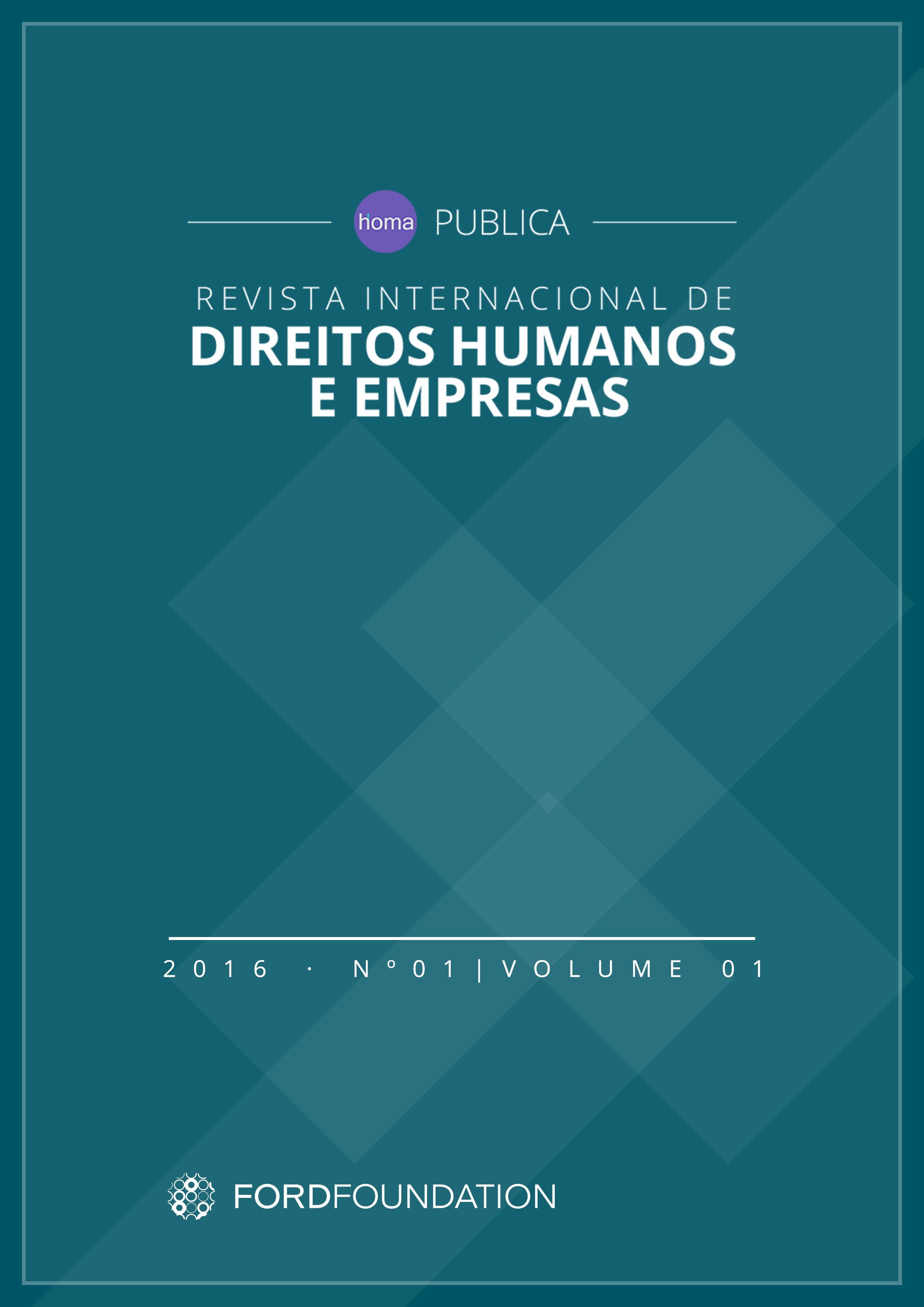A binding instrument on Business and Human Rights: some thoughts for an effective next step in international law, Business and Human Rights
Publicado 2016-11-30
Palabras clave
- Derechos Humanos,
- Empresas,
- Princípios Rectores de las Naciones Unidas sobre Empresas y Derechos Humanos,
- Corporaciones Multinacionales
Cómo citar
Resumen
La búsqueda por una herramienta para imponer la responsabilidad corporativa en violaciones de derechos humanos es antigua. La adopción de la Resolución del Consejo de Derechos Humanos de la ONU para elaboración de un instrumento vinculante y para el establecimiento de un grupo de trabajo intergubernamental representa la última etapa en la evolución de los intentos de regular corporaciones multinacionales. El movimiento en el sentido de desarrollar un instrumento vinculante en derechos humanos y empresas está repleto de disenso. Por eso, requiere un análisis completo tanto de su contenido propuesto, como del resultado que nosotros podríamos esperar atingir con tal instrumento. Este artículo analiza la creación y el contenido propuestos para un instrumento vinculante, así como su concepto e implementación.
Descargas
Citas
DE SCHUTTER, Olivier, “Towards a New Treaty on Business and Human Rights”, Business and Human Rights Journal 1 (2016): 47.
HAMANN, Ralph, “Corporate Social Responsibility, Partnerships and Institutional Change: The Case of Mining Companies in South Africa” Natural Resources Forum 28 (2004):278.
MEYERSFELD Bonita, Domestic Violence and International Law (Oxford: Hart Publishing, 2010).
MEYERSFELD, Bonita, “Institutional Investment and the Protection of Human Rights: A Regional Proposal” in Globalisation and Governance, ed. Laurance Boulle (South Africa: SyberInk, 2011), 174.
MEYERSFELD, Bonita, “Empty Promises and the Myth of Mining: Does Mining Lead to Pro-Poor Development?” Business and Human Rights Journal, forthcoming.
MUROMBO, Tumai, “Regulating Mining in South Africa and Zimbabwe: Communities, the Environment and Perpetual Exploitation” Law, Environment and Development Journal 9/1 (2013):31.
OWEN, John R. and KEMP, Deanna, “Social License and Mining: A Critical Perspective” Resources Policy 38 (2013): 30.
SORELL, Tom, ”Project Financing in Developing Countries, New Corporate Social Responsibility, Human Rights, and Multinational Corporations” (2008) 5 Essex Human Rights Review 5/1 (2008): 2.

